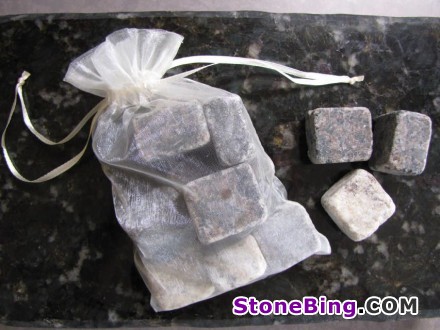
(March 2013) US-American EcoGranite Company uses stone waste and remnant exclusively and has put the concept to work successfully: demand is excellent, the palate of products wide and raw material readily available at stable prices. The enterprise founded nine years ago as a spin-off of building company now has s staff of ten.
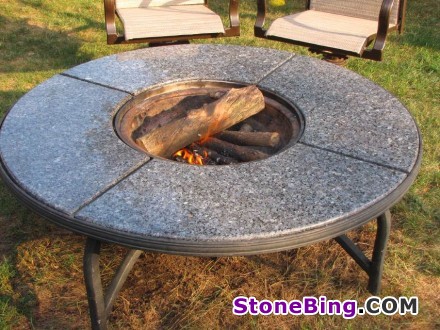
The secret to success, to a great extent, lies in the properties of the material itself: after its first life, stone loses none of its value or radiance.
E.g. paper: as it turns gray and loses its brightness when recycled, elaborate bleaching is needed. Also its fibers are reduced in length after every process. This, in turn, results in a loss of quality.
Down cycling is the technical term: with each life cycle quality is further reduced.
Not so for stone. Only the size of the chips or particles is reduced from one life cycle to the next. But even in its last life cycle stone retains not only its functionality but also its decorative value. Gravel serves as a component not only for road construction but also as an element for designing flower beds. Slate chips are often used instead of mulch around the foot of trees.
Head and founder of EcoGranite, David Popp, emphasize the longevity and intrinsic value of stone as a material: “People are willing to buy our product … because it is high-quality and made of stone.”
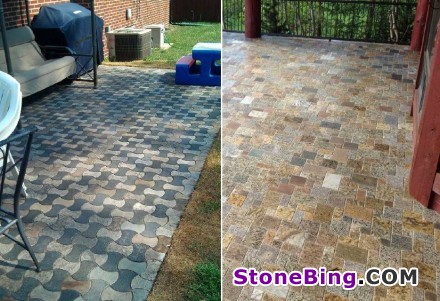
Stone is stone, even when recycled, and retains its value and special radiance, according to David Popp: since the raw material for his business is inexpensive, some of his products are less pricey than concrete. And as to the more expensive items, well, here the aesthetic aspect comes to play.
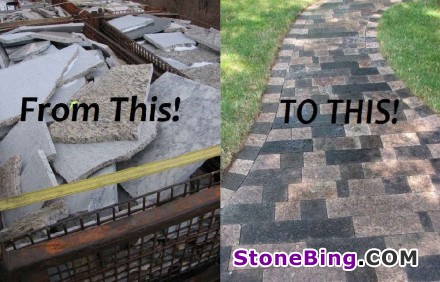
EcoGranite uses chips and remnants mainly left over from gravestone production and demolished buildings for which waste disposal is gladly delegated. The greatest cost factor is manual labor: each piece has to be unloaded, sorted and worked.
Transportation is also a cost factor which restricts the availability of the raw material. EcoGranite whose headquarters are located in Michigan’s Farmington Hills does not use quarry waste for its production simply because there are no quarries in the near vicinity.
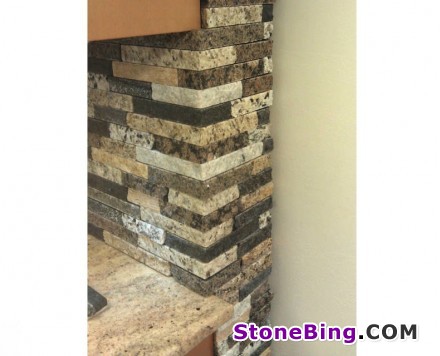
With respect to machinery, David Popp has the usual set of equipment ranging from saws to a polishing table. The accoutrement includes presses used in the production of veneer used e.g. for flooring or wall cladding.
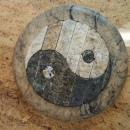
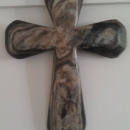
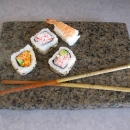
EcoGranite’s distinguishing factor is the total lack of refuse which is why the palate of goods produced is very wide. This, in turn, makes production resistant to seasonal particularities according to David Popp: "In winter, paver production slows down, yet decorative items and veneers ramp up as people try to find things to do inside the home."
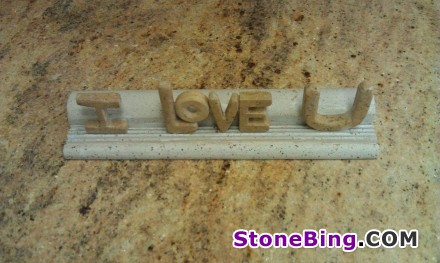
Is he not afraid that others will copy his business model making raw material premium goods? "I welcome any competitors to our market and believe that there is a lot of room for expansion in the field of recycling stone here in the USA", he says.







